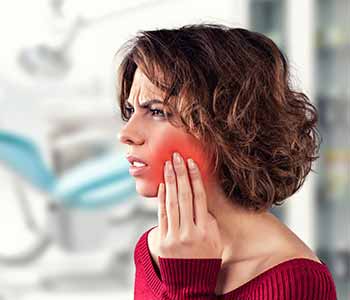Visit a San Francisco dentist for TMJ disorder rather than an oral surgeon

Temporomandibular joints (TMJ) connect the lower jaw to the skull. TMJ disorders (TMD) cause dysfunction and pain in the temporomandibular joint and the surrounding muscles. It is estimated that more than 10 million people in the United States suffer from this painful condition.
Types of temporomandibular joint disorders
TMJ disorders and the way people respond to treatments are varied. Generally, researchers agree that they fall in three categories.
- Myofascial pain syndrome (MPS) involves pain or discomfort in the muscles that control the function of the jaw
- Derangement involves injury to the condyle, a dislocated jaw, or a displaced disc
- Arthritis is inflammatory/degenerative joint disorders that can affect the TMJs
For some people, the condition seems to develop without an obvious cause; bruxism or trauma to the jaw may play a role for some patients. Unfortunately, science doesn’t know the cause in most cases of jaw muscle and joint problems.
Signs of TMD
- Changes in the way the lower and upper teeth fit together
- Pain radiating through the jaw, face, ear, neck, or shoulder
- Stiffness in the jaw muscles
- Limited movement of the jaw
- Painful grating, popping, or clicking of the jaw when opening and closing the mouth
Less is best
Numerous options are available for treatment including lifestyle changes, dental appliances, Botox®, surgery, and jaw implants. Health professionals recommend the most conservative approach possible.
Dr. Leo Arellano and his team offer conservative treatment including recommendations for changes in lifestyle, jaw exercises, and a comfortable oral appliance. The splint will be either a stabilization splint or a repositioning splint. A stabilizing splint is designed to prevent clenching or grinding (bruxism). Repositioning splints realign the condyles by pulling the jaw forward. These appliances are the most commonly used treatments for TMD.
Suggested lifestyle changes may include eating soft foods, stopping chewing gum, reducing stress, and avoiding wide yawns. Ice packs may be recommended to reduce discomfort.
Dr. Leo Arellano and his team in San Francisco work with patients to determine the best way to bring them relief without the need of an oral surgeon, as surgeries should always be the last choice. Call 415-881-4343 and schedule a consultation today.








